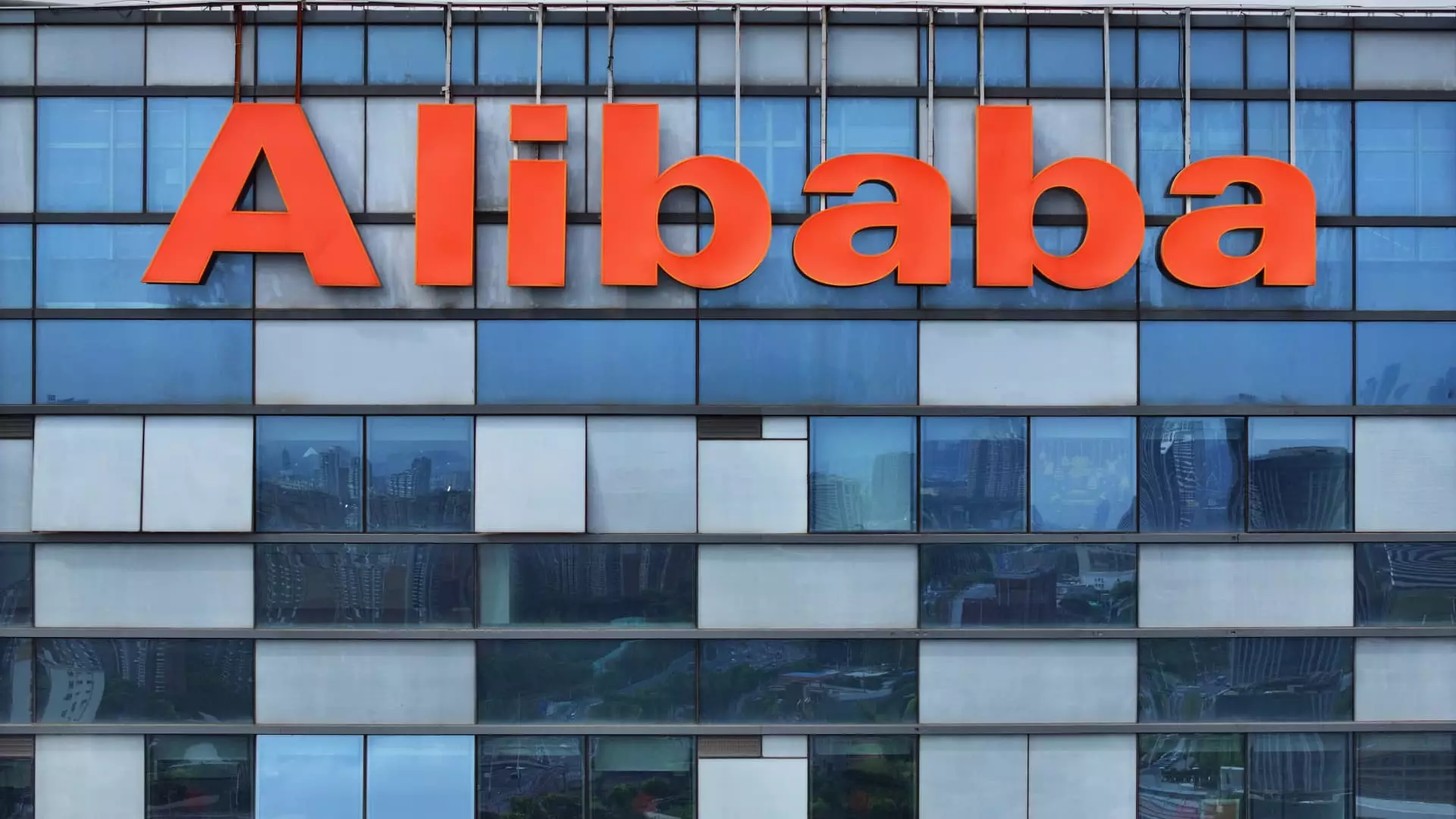In a compelling turnaround, Alibaba’s shares in Hong Kong experienced a notable surge, reaching as high as 11% on Friday after the company released its latest quarterly earnings report. This financial disclosure revealed strong growth in both the cloud intelligence and e-commerce segments, two critical sectors for Alibaba. Ultimately, the stock was up 9.18% at closing, showcasing robust investor confidence amidst a recovering market. Analysts from Nomura have expressed optimism regarding Alibaba’s e-commerce prospects, anticipating sustained growth in the first half of 2025, primarily fueled by government initiatives aimed at stimulating consumer spending.
The Chinese government has strategically positioned itself to invigorate domestic consumption with a pledge of 300 billion yuan (approximately $41.5 billion) in ultra-long special government bonds. This capital infusion is part of a broader plan to enhance trade-in programs and encourage equipment upgrades among consumers. As these initiatives take root, domestic e-commerce appears to be on a trajectory toward more sustainable growth, contributing positively to the overall sentiment within China’s technology sector. Senior equity advisor Vey Sern Ling from UBP emphasized that the sentiment is not just limited to Alibaba but is reverberating across the broader landscape of Chinese tech stocks.
The surge in Alibaba’s stock can also be attributed to the broader developments within the technology space, particularly concerning artificial intelligence (AI). The emergence of new AI players, such as DeepSeek, has intensified competition, challenging existing frameworks established by U.S. tech giants. In response, Alibaba is poised to significantly ramp up its investments in AI and cloud infrastructure over the next three years. According to analysts from Barclays, this period is anticipated to be the most concentrated phase of investment Alibaba has ever undertaken in these sectors, surpassing a total of nearly 270 billion yuan in expenditures from the past decade.
Adding another layer to this narrative is the return of Jack Ma, Alibaba’s founder, who has mostly avoided public engagements since 2020. Recently, Ma participated in a private meeting with Chinese President Xi Jinping, a development that many observers see as a crucial step toward re-establishing ties with the government. During the meeting, Xi urged private enterprises to embrace their potential and foster confidence in what he termed a “new era” of business operations in China. This conversation may symbolize a thawing of the previously tense relationship between regulatory authorities and major tech companies, potentially unlocking new opportunities for Alibaba.
Alibaba’s financial performance for the quarter ending December 31 further cements its position within the market. The company reported a net income of 48.945 billion yuan (around $6.72 billion), starkly surpassing market expectations of 40.6 billion yuan. This figure is remarkable, being more than three times the net income reported for the same quarter last year. Additionally, Alibaba’s revenue reached 280.15 billion yuan, exceeding analyst expectations of 279.34 billion yuan and signaling a recovery from previous downturns.
Alibaba finds itself at a pivotal moment, marked by a combination of rising stock prices, government support, renewed focus on AI and cloud technology, and promising financial results. While the road ahead may still face challenges, including external competition and regulatory scrutiny, the current trajectory suggests that Alibaba is well-equipped to navigate this complex landscape. As the company continues to invest in innovative technologies and capitalize on favorable government policies, it could very well solidify its status as a leader in the global tech arena. The coming years could witness Alibaba not just recovering but thriving, allowing it to expand its footprint further in both domestic and international markets.

